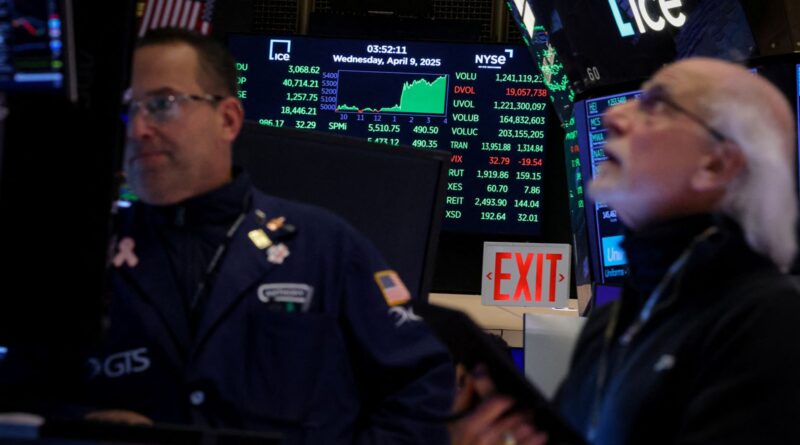Donald Trump Has Finally Blinked – But It’s Not the Stock Market Driving His Actions | Money News
Attribute this one to the bond vigilantes.
This term refers to investors who respond to perceived reckless fiscal or monetary policies by selling government bonds, which in turn raises yields, effectively increasing borrowing costs.
Much of the market’s attention following Donald Trump’s recent tariffs has centered around the disastrous reaction from the stock market.
This type of response was previously thought to be taken seriously by Mr. Trump.
During his initial term in the White House, the strength of US equities—especially the S&P 500—was seen as a measure of his administration’s success.
In the past week, he had dismissed the negative equity market response to his tariffs as “medicine” needed to correct what he viewed as detrimental global trade imbalances.
Yet, as is often the case, it was the bond markets that compelled Mr. Trump to reconsider—make no mistake, he has indeed reconsidered.
Initially, following the imposition of his tariffs—justified by dubious calculations and a questionable formula featuring Greek symbols—bond prices surged while equities declined.
This correlation is not unusual; significant stock market declines, such as those seen in 1987 and 2008, are often accompanied by bond rallies.
However, this week has witnessed something different, with equities continuing to tumble and US government bonds following suit.
At the week’s beginning, yields on 10-year US Treasury bonds, regarded as the safest investments, stood at 4.00%.
By early yesterday, they had surged to 4.51%, a significant increase by most investors’ standards. This is a critical development.
The 10-year yield influences the interest rates on various essential financial products for average Americans, including mortgages, car loans, and credit card debt.
By driving up the yield on such securities, bond investors were executing their roles effectively. It is not an exaggeration to liken this to the experiences faced by Liz Truss and Kwasi Kwarteng following the latter’s mini-budget announcement in October 2022.
As with the fallout from that incident, the stark response in bonds resulted from forced selling.
A portion of the sell-off seems to stem from investors concluding—correctly—that Mr. Trump’s tariffs would significantly inject inflation into the US economy, and inflation is detrimental to bondholders.
Moreover, it appears the US Treasury faced its weakest demand in nearly 18 months for a $58 billion auction of three-year bonds this Tuesday.
Yet, the predominant cause of the selling appears to be hedge funds unwinding ‘basis trades’—a strategy to profit from price discrepancies between a bond priced at $100 and a futures contract for that same bond priced at $105.
Under typical circumstances, a hedge fund might purchase the bond at $100 and sell the futures contract at $105, anticipating profit when the two prices align in what is generally a low-risk trade.
So low-risk that hedge funds often ‘leverage’ their investments—borrowing heavily to maximize potential profits.
The swift and intense decline of US Treasuries this week reflected these hedge funds closing out those positions by selling Treasuries.
More from Sky News:
What a global recession would mean
Is there method to the madness?
Faced with a potential increase in borrowing costs for countless American homeowners, consumers, and businesses, the White House has opted to scale back its tariffs, which was the right decision.
This decision immediately sparked a significant rally in the equity markets— the Nasdaq recorded its second-best day ever since 2001, while the S&P 500 enjoyed its third-best session since World War II—and a recovery in US Treasuries.
The prominent Wall Street investment bank Goldman Sachs promptly reduced its forecast for the likelihood of a US recession this year from 65% to 45%.
Of course, Mr. Trump will not concede that he has backed down, asserting last night that some investors had become “a little bit yippy, a little bit afraid.”
It is entirely possible that the markets may face continued volatility: the threat of Mr. Trump’s tariffs being reinstated in 90 days looms, and a full-scale trade war between the US and China is currently underway.
Nevertheless, Mr. Trump has indeed backed down. The bond vigilantes have effectively reined him in. This president, who previously wielded considerable power through his aggressive deployment of emergency executive authorities, will no longer seem quite so formidable.







